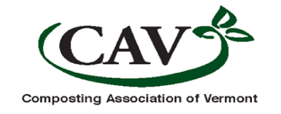5 Composting Misconceptions
/Guest blogger Ali Drew
There are many common composting misconceptions that hold people back from composting, or composting correctly. Here are 5 composting misconceptions that we’ve found people are curious about!
1. Compost smells bad
If your compost smells bad, you’re most likely not composting correctly. A common mistake people make when composting is only adding greens (food scraps) and no browns (yard debris like leaves, dry grass, sawdust and chipped wood). Browns, or carbon materials, keep your compost from just being a pile of rotten food. The microbes doing the work need the right mix of carbon and nitrogen (about 3 parts carbon to 1 part nitrogen for most backyard systems)! Maintaining the right mix of browns and greens in your compost also helps balance the moisture, as most greens are wet and most browns are dry. If your compost is too wet, it typically gets pretty smelly which can attract animals.
2. Compost attracts wildlife & rodents
As stated above, properly managing your compost helps deter wildlife & rodents from visiting. A big part of this is ensuring that you’re adding enough carbon. If you are concerned about - or are already having issue with animals in your compost - DO NOT add meat & bones. You need to be consistently achieving hot compost (120+ degrees F) to safely compost these items. Vermont’s Universal Recycling Law (Act 148) allows you to dispose these items in your trash if you are already composting everything else at home, or you can bring them to your transfer station or another food scrap drop-off site, so they don’t attract animals to your composting bin. Additionally, look around your property to see if you have other wildlife attractants, like bird feeders. If wildlife are coming into your yard for other food, they often then take a look around for other treats as well. See more tips in Vermont DEC’s Compost with Confidence tip sheet.
4. Rice, pasta and other carbohydrates cannot be composted
It is totally fine to compost carbs! We have no idea where this myth came from, but please compost your carbs. However, if most of your compost is carbs, you should adjust your recipe to include a diversity of greens and browns.
3. Dairy cannot be composted
Dairy can be composted! But avoid putting blocks of dairy into your compost, as it could disrupt your compost ecosystem for a few weeks.
5. Large outdoor space is necessary to compost
A compost bin or tumbler doesn’t take up much space! But if you don’t have outdoor space on your property, you can still divert organics to drop-off centers or use a curbside pickup service.
Drop-off centers: You can drop off food scraps and yard debris at any transfer station or bag-drop in Vermont. Many compost facilities also have drop-off options. Check out these resources by The Vermont Department of Environmental Conservation to learn more about services in your area: local Waste Management District or town & Materials Management Map.
Curbside pickup: Ask your hauler if they offer leaf and yard debris or food scrap pick-up, or call or look at the website of a hauler on the statewide list of food scrap haulers.





